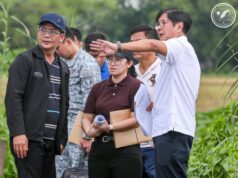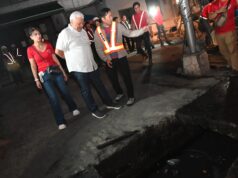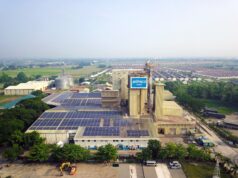Or Google her.
The final judgment portion of her writings, based on her visions, petrifies me, perhaps with fear, but in a way that excites. Where would be my place there, so far into the future? I could only pray to the Divine Mercy.
The following words are Valtorta’s on that future event.
“A vast expanse of soil, so boundless as to be like a sea. I say “soil” because there is soil as on the fields and on the streets. But there are no trees, not a stalk, not a blade of grass.
Dust, just dust.
“I see this in a light that is not light. A barely sketched, wan glimmer, of a greenish violet as can be seen at times of very strong storms or total eclipses. A frightening light of burnt-out stars. That’s it: the sky is starless, there is no moon, no sun. The sky is empty, as the earth is empty. The one has been stripped of its flowers of light, the other of its plant and animal life. Both are huge sloughs of what used to be.
“I have all the time to see this desolate vision of the universe’s death. I think it will look the same as at the first moment, when sky and earth already existed, but the sky was void of heavenly bodies, and earth was bare of life. It was an already solidified globe but still uninhabited, hurtling in space, waiting for the Creator’s finger to give it herbs and animals.
“Why do I understand the vision to be that of the universe’s death? Because of one of those ‘other voices.’ I do not know whom they come from, but they do in me what the chorus does in the ancient tragedies. They point out special aspects of the play that the protagonists do not explain. This is precisely what I would like to tell you and which I will tell you after.
“As I look around on this desolate scene, the need of which I do not understand, I see, springing up from I don’t know where, standing in the middle of the endless plain, I see Death. A skeleton laughing with its uncovered teeth and its empty eye-sockets. Sovereign of that dead world, wrapped up in its winding-sheet as in a cloak. It has no scythe. It has already reaped everything. It casts its empty gaze around on its harvest and sneers.
“It has its arms joined on its chest. Then it opens them, these skeletal arms, and opens its hands, nothing more than bare bones; and, because it is a gigantic figure present everywhere–better to say near everything– it leans a finger, its right forefinger, onto my forehead. I feel the ice of the sharp bone that seems to pierce through my forehead and go in my head like an ice-needle. But I understand that this has no other meaning than that of calling my attention to what is happening.
“Sure enough with its left arm it gestures at the desolate sweep on which we rise, it the sovereign, I the only living being. Upon its silent bidding, given with its left hand’s skeletal fingers and by rhythmically turning its head right and left, the soil cracks into thousands of clefts. And in the bottom of these dark gullies, scattered white things shine white, but I do not understand what they are.
“As I strain to decide what they are, Death goes on furrowing the clods with its gaze and command, as with a ploughshare. The clods cleave open more and more, as far away as the horizon, and Death ploughs the waves of the sail-less seas, and the waters gape open, forming liquid abysses.
“Then from the earth-gullies and from the sea-furrows, the white things, which I saw scattered and unbound, come up and reassemble. Millions upon millions upon millions of skeletons emerge from the oceans and stand up from the ground. Skeletons of all sizes: from tiny infant-skeletons with tiny hands like little dusty spiders, to adult skeletons, even gigantic ones whose bulk evokes some antediluvian beings. And they are amazed, somewhat shaking, like people waking up with a start from a deep sleep, who cannot make out where they are.
“The sight of all these skeletal bodies, shining white in this Apocalyptic ‘non-light’, is frightful.
“Then a cloudiness not unlike fog rises from the open ground and open seas, and slowly condenses around these skeletons.
Taking shape and becoming opaque, it turns to flesh, bodies like ours who now live. Eye sockets are filled with eyes and irises, cheek bones are covered with cheeks, over bare jaws gums now stretch and lips are remade and hair grows again on skulls and arms are fleshed out and fingers turn nimble and the whole bodies become alive again, just like ours.
“Though like ours, the new bodies look different. Some are wonderfully beautiful, with a perfection in shape and colors which make them like art masterpieces. Others are hideous, not on account of lameness or real deformities, but on account of their overall appearance more beastly than human: sidelong eyes, twisted faces, looks of a wild beast and, what strikes me the most, a darkness given off by those bodies which increases the leaden color of the air around them. Whereas the wonderfully beautiful ones have smiling eyes, peaceful faces, pleasant looks, and shed a brightness that makes a halo around their whole being from head to toe and spreads to the inside.
“If all were like the murky ones, darkness would be so complete as to hide everything. But because of the other ones, brightness not only lasts, it increases, so much that I can see everything as one should.
“The ugly ones’ cursed destiny is not in doubt, because this curse is marked on their foreheads. They say nothing, casting around them frightened, sidelong glances with their faces lowered, and they gather to one side, upon an inmost command which I cannot hear but must have been given by someone and heard by the risen. The wonderfully beautiful ones also gather, smiling at one another and looking at the ugly ones with pity mixed with horror. And these exceedingly beautiful ones sing, singing to God a slow, tender hymn of blessing.
“I can see nothing else. I understand I just saw the final resurrection.”



